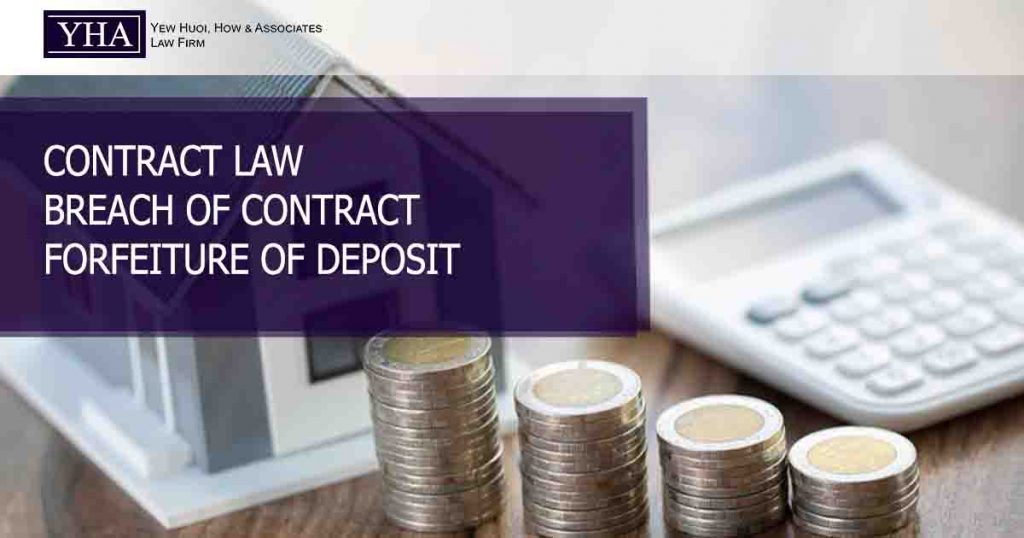Q: I owned a property worth RM100 million. Mr. A offered to purchase it. I accepted his offer with an earnest deposit of RM1 million paid by him. The acceptance of the offer was premised on the condition that the Sale and Purchase Agreement (“SPA”) will be executed within 30 days, failing which the RM1 million earnest deposit would be forfeited as agreed liquidated damages. Mr. A failed to meet the 30 days deadline to sign the SPA, can I forfeit the deposit?
Yes.
A deposit is not merely a part payment of the purchase. It is also a guarantee for performance of a contract. It is generally not recoverable.
Whether deposit can be forfeited if there is a breach of contract?
Yes.
- Generally, if there is a breach of contract, any money paid as part-payment of the contract price is recoverable by the defaulting party.
- However, a deposit serves two purposes i.e. as guarantee of performance of the contract and also as part payment. Hence, if there is a breach of contract, the deposit is not recoverable. A deposit can be forfeited by the innocent party in the event of a breach.
- However, such forfeiture is also subject to the test of “reasonableness” in section 75 of Contracts Act 1950 (“CA 1950”). In another words, the amount of deposit expected to be forfeited must be reasonable and not excessive.
- There is no necessity for proof of actual loss or damage under the Federal Court decision in Cubic Electronics Sdn Bhd (in liquidation) v Mars Telecommunications Sdn Bhd – [2019] 6 MLJ 15.
- The burden of proof is on the defaulting party to show the deposit is unreasonable.
Can I rely on Liquidated Agreed Damages (LAD) Clause in a contract and claim as my losses when there is a breach?
Yes.
STEP 1 : You need to prove that there is a breach of contract and that contract has a LAD clause.
STEP 2 : The LAD clause will be tested with the “reasonableness” test in section 75 of CA 1950. In determining ‘reasonable compensation’, the concepts of ‘legitimate interest’ and ‘proportionality’ are relevant.
STEP 3 : If there is a dispute as to what constitute reasonable compensation, the burden of proof falls on the defaulting party to show the damages clause is unreasonable.
STEP 4 : You are entitled to the sum not exceeding the stipulated LAD.
What is an LAD clause?
A LAD clause is a clause that entitles a party to recover certain amount of money upon the occurrence of the event (usually a breach). Pursuant to the decision of the Federal Court Cubic Electronics Sdn Bhd (in liquidation) v Mars Telecommunications Sdn Bhd – [2019] 6 MLJ 15, there is no longer a need to prove actual damage to recover LAD.

